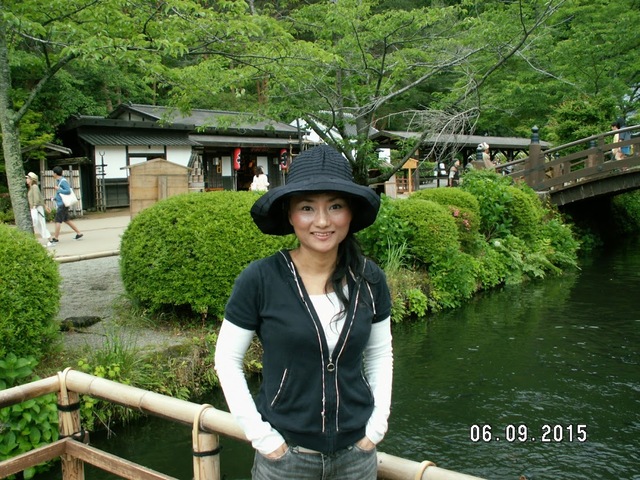正しい道を選ぶ基準をどうやって定めることができるだろうか。
How can we determine the criteria for choosing a right way to do?
正しいとか正しくないとかの判断は何を基準にして定まっているだろうか。
What kind of judgements determine the criteria of which is right or wrong?
正しいことの反対側は間違いだろうか。
Can be the opposite of Right is Wrong?
これらの疑問は宗教でしか答えられないだろうか。
Could be answered for these questions only by religion?
私は韓国で生まれ、日本で長年暮らし、今はアメリカで暮らしているからそれぞれの国の文化の違いが日常生活のレベルで分かってくる。
I was born in South Korea, lived in Japan for many years and I live in US now, so I come to understand each country’s cultural differences at daily life level.
その暮らしの中で気づいたことは、人様の生きるべき道としての正しいか正しくないかの判断基準は風習のように過去の前例で決まってくるということだ。
What I learned in those daily life is the criteria for judging whether right ways or wrong to be right in the ways of should live right will be decided by precedents which happened in past like customs.
人々の価値判断基準は宗教の違いにより異なり、国々の文化の違いによっても善悪を判断する思考過程が違う。People’s criterion of judgement for what is worthiness is different from one’s religion and each country also have cultural differences depending on their own thinking process to judge whether good or evil.
例えば、クリスト教では神は有一の存在であるが、日本では複数の神がいて日常の中に溶け込んでいる。
For example, Christians believe God as the singular existence but there are several gods in Japan and the gods are blended into people’s daily life.
韓国での神の概念は全知全能の存在で超自然的な現象や科学で解明できないことを神の領域に分類し、人間の力が及ばない範囲や性質を神に例えている。
The concept of God in South Korea is an almighty being and it is classified into a regime of god-domains which like supernatural phenomenon or things that cannot be elucidated with science and they means as a kind of power beyond human nature or an unattainable range.
それらの差異や視点の違いを日常で経験すると、正しいと決めることに迷いが生じたりする。
As my experiencing of those differences or discrepancies of view points in ordinary, it makes an ambivalence to decide to be right.
だが、仏教の教えの一つに『八正道』があり、それを学んだ時はその迷いが消え、何が正しいかの疑問も消えた。
However, there『Noble Eightfold Path』is one of Buddhism teachings and when I learned it disappeared the ambivalence and doubting of what would be right.
私はある特定な宗教に所属されたくないのだが、その八正道の教えには納得ができ、仏教徒でない私でさえ教えは承り実践するのに価値があると思えてきた。
I do not want to belong to a specific religion, but the teaching of Noble Eightfold Path made sense to me even I am not a Buddhist and I began to think it is worthy to practice as I learned those teachings.
以下はその8の正しい道のウィキペディアの引用である。
Below is the quotation from Wikipedia about eight ways of Noble Eightfold Path.
①正見:真理などを正しく知る。
Right View: To know truth kinds accurately.
②正思惟:正しく考え判断する。
Right Resolve: Rightly think and judge.
③正語:正思惟されたものの実践である。
Right Speech: It is practical conduct of Right Resolve.
(嘘離れ、無駄話を離れ、仲違いさせる言葉を離れ、粗暴な言葉を離れることである)
(it means no lying, be away from idle gossip, be away from misunderstanding each other, leave violent words)
④正業:正思惟されたものの実践である。
Right Conduct: It is practical conduct of Right Resolve.
(殺生を離れ、盗みを離れ、性的行為-特に社会道徳に反する性的関係-を離れることをいう)
(To say, be away from destruction of life or killing, be away from stealing, be away from sexual behave especially sexual relationship contrary to social morality)
⑤正命:正当ななりわいを持って生活を営むこと。
Right Livelihood: Live life with a rightfulness to carry on one’s livelihood.
⑥正精進:「すでに起こった不善を断ずる」「未来に起こる不善を生こらないようにする」「過去に生じた善の増長」「いまだ生じていない善を生じさせる」という四つの実践について努力することである。
Right Effort: Make efforts for those four-practical conducts such as「eliminate vice that already has arisen」「try to prevent a vice will happen in the future」「increasing and expanding virtue that has happened in past」「make happens virtue that have not occurred yet」
⑦正念:常に今現在の内外の状況に気づいた状態(マインドフルネス)でいることが「正念」である。
Right Mindfulness: To be always being aware (with mindfulness) of current situations in inside and outside.
⑧正定:正しい集中力(サマーディ)を完成することである。この「正定」と「正念」によってはじめて、「正見」が得られるのである。
Right Concentration: It is to complete right concentration(samādhi). By these Right Concentration and Right Mindfulness can get the Right View for the first step.
上記の8の項目に正しくない道(誤道)を付け加えると対調性が明確になり、更に分かりやすくなる。
Adding other incorrect eight ways(misconduct) on above eight lists it will make clear symmetrical comparison and make clearer understanding.
①誤見:真理などを正しく知らない。
Wrong view: Not knowing truths kinds correctly.
②誤思惟:正しく考え判断しない。
Wrong Resolve: Wrongly think and judge.
③誤語:誤思惟されたものの実践である。
Wrong Speech: It is practical conduct of Wrong Resolve.
(嘘、無駄話、仲違いさせる言葉、粗暴な言葉をすることである)
(it means tell a lie, the words that make misunderstanding each other, using violent words)
④誤業:誤思惟されたものの実践である。
Wrong Conduct: It is practical conduct of Wrong Resolve.
(殺生、盗み、性的行為(特に社会道徳に反する性的関係)をすることをいう)
(To say, doing destruction of life or killing, stealing, doing sexual behave especially having sexual relationship contrary to social morality)
⑤誤命:正しくないなりわいを持って生活を営むこと。
Wrong Livelihood: Live life with a wrongness to carry on one’s livelihood.
⑥誤精進:「すでに起こった不善を継続する」「未来に起こる不善を生こるようにする」「過去に生じた悪の増長」「いまだ生じていない悪を生じさせる」という四つの実践をすることである。
Wrong Effort: Doing four-practical conducts such as「continue vice that already has done」「try to accuse a vice will happen in the future」「increasing and expanding vice that has accured in past」「make happens vice that have not occurred yet」
⑦誤念:常に今現在の内外の状況に気づけていない状態でいること。
Wrong Mindfulness: To be always being unaware of current situations in inside and outside.
⑧誤定:正しい集中力(サマーディ)を完成することができていない。この「誤定」と「誤念」によって「誤見」になる。
Wrong Concentration: It is not being able to complete right concentration(samādhi). By these Wrong Concentration and Wrong Mindfulness these can be the Wrong View for the begging.
正しいのは正しくないことを明確にすると概念が定まり、
Righteous way will be decided by clarifying what is not right,
正しくないことは正しい正の位置に立つことにより見えてくるのではなかろうか。
Guessing that the righteous ways can see through by standing at the right positions.



















